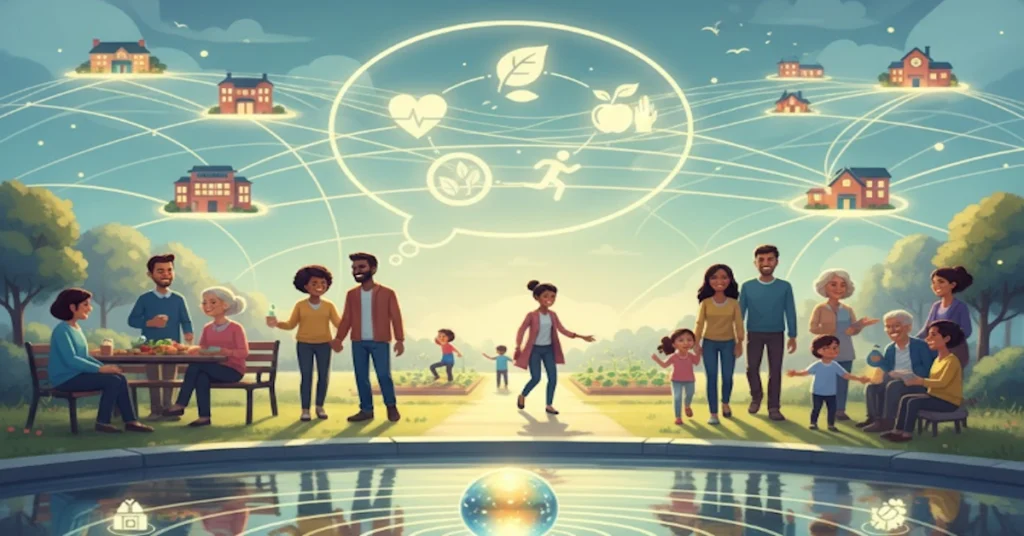
Health is more than a personal goal — it’s a force for collective change. Whether you care about mental wellness, nutrition, elder care, or preventive fitness, your passion can spark healthier communities. When individuals speak up, organize, and act, personal wellbeing transforms into social progress, creating systems that support everyone’s physical, emotional, and communal health.
The Gist
You can use your passion for health to improve community wellbeing by focusing on education, partnership, and consistent action. Start by identifying a need, aligning with local groups, building credibility through service, and amplifying stories that inspire others. Small steps — like organizing a local wellness day or writing an op-ed — can lead to lasting change.
Step-by-Step Checklist: Your Path from Passion to Public Impact
- Define Your Focus Area — Is it youth nutrition? Elder care? Mental wellness? Clarity attracts allies.
- Educate Yourself — Stay informed via Harvard Health, WHO community health guides, or NIH wellness initiatives.
- Map Local Needs — Use public health dashboards or attend local council sessions.
- Partner Up — Collaborate with nonprofits, gyms, or health departments.
- Host Micro-Events — Community walks, mental health circles, or cooking demos.
- Share Credible Information — Cite sources like CDC or Johns Hopkins Public Health.
- Measure Small Wins — Track attendance, feedback, or reduced health risks.
Example Advocacy Pathways
| Passion Area | Local Action | Potential Partner | Outcome |
| Nutrition | Start a “Healthy Lunchbox” challenge | Local schools | Improved child nutrition awareness |
| Fitness | Launch a weekend walking group | Parks Department | Increased community movement |
| Mental Health | Host peer support sessions | Local therapists | Stronger emotional networks |
| Aging & Longevity | Volunteer with meal delivery orgs | Meals on Wheels | Reduced isolation for seniors |
Randomized Insight Burst:
Sometimes advocacy begins in silence — not a march, but a conversation. Share a story about recovery, burnout, or your own wellness journey. People follow authenticity before they follow policy.
Building a Health-Based Venture
If your passion for health has sparked entrepreneurial energy, consider turning it into a business that serves your community — like a wellness studio, telehealth service, or a personalized nutrition brand.
Starting such a venture means handling legal structure, compliance, and outreach all at once. An all-in-one business platform like ZenBusiness can simplify forming an LLC, building your site, and managing your operations so you can focus on helping others thrive.
Product Highlight: Staying Organized with Your Mission
Advocacy thrives on clarity and consistency. Tools like Trello, Canva, or Airtable can help you plan events, design campaigns, and track volunteers effectively — without burning out.
(Tip: Create a shared “Community Health Dashboard” to visualize your progress.)
FAQ
Q1: Do I need formal training to advocate for health?
No. Passion + credible information is a strong foundation. Partner with professionals for validation when needed.
Q2: What’s the first small action I can take?
Start locally — share verified health tips on social media or host a small info night at your library.
Q3: How can I measure my impact?
Use participation metrics, surveys, or even anecdotal stories to show engagement and outcomes.
Q4: How do I stay motivated when change feels slow?
Track progress publicly — even minor wins remind both you and your audience that momentum exists.
Quick “Advocate’s Pulse” Mini-List
- Set monthly goals (e.g., one event or one collaboration)
- Share evidence-backed insights
- Build allies across different communities
- Take care of your own health first
Glossary
Advocacy — Public support for a cause aimed at influencing decisions or behavior.
Health Literacy — The ability to access and understand basic health information.
Community Health — A collective approach to improving wellbeing at a local level.
Social Determinants of Health — Non-medical factors like income, environment, and education that affect health outcomes.
You don’t need a medical degree to create healthier ecosystems — you just need focus, empathy, and persistence. Start where you are, use what you know, and connect with others who share your mission. Every conversation, event, and idea can become a thread in a stronger social fabric of health.
